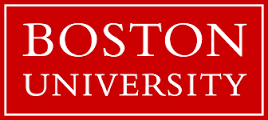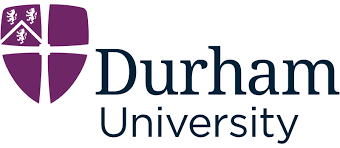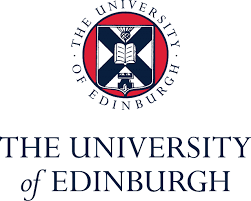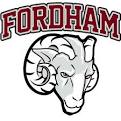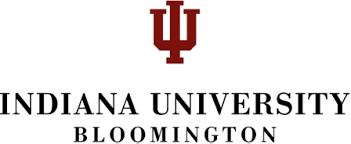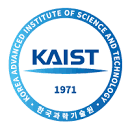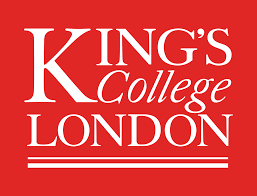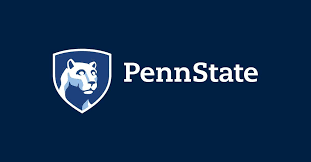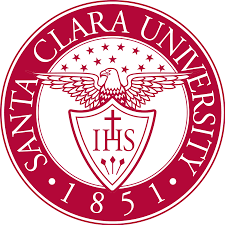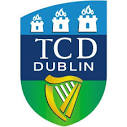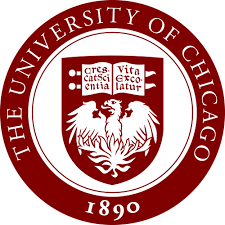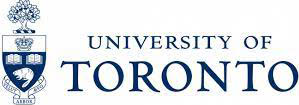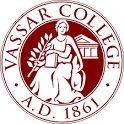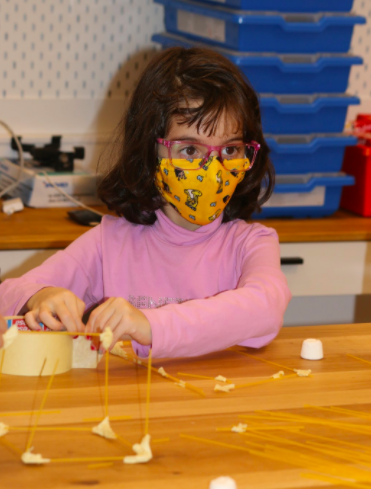
As 2021 launches, we’re thrilled to have our youngest learners here on campus. They were not only excited to reconnect with their teachers and classmates, but they greatly enjoyed their time in the Idea Lab with ES tech coach, Pat Frape, meeting the “spaghetti tower” challenge ( left).
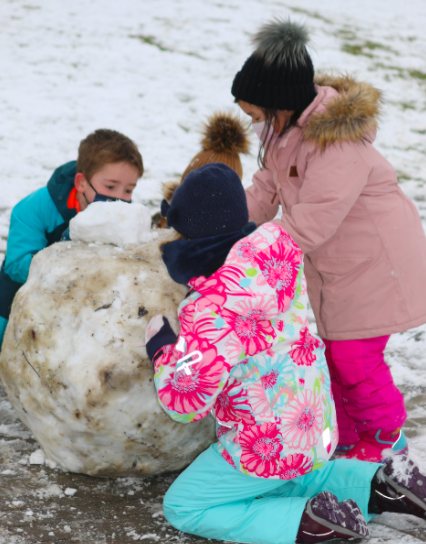
The most exciting part of the week, for one and all, was having fun in the fresh snow! Knowing how fleeting snow can be in Prague, students made maximum use of their time outside during recess and PE to build snow creatures and toboggan down the mini hill outside the cafeteria.
ECF Self-Portraits
As the name implies, our Early Childhood Foundations program, taught by our highly expert and experienced educators, builds the solid foundation for literacy, numeracy, scientific observation and reasoning, as well as fine motor skills. The following explanation from our ECF teachers, Ms. Amber (homeroom) and Ms. Akshaya (atelierista), highlights one way our youngest learners build this foundation through self-portraits, a project over time.
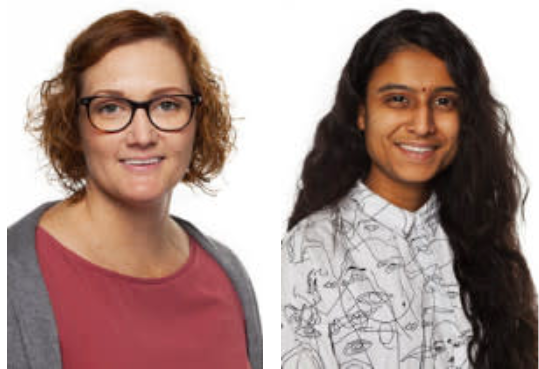
To be able to write, children have to know the alphabet; to function mathematically, they must know numbers. But before learning these, children make marks. Marks are the elements which make a drawing, a picture, letters and numbers. To make marks on a surface comes instinctively to children.
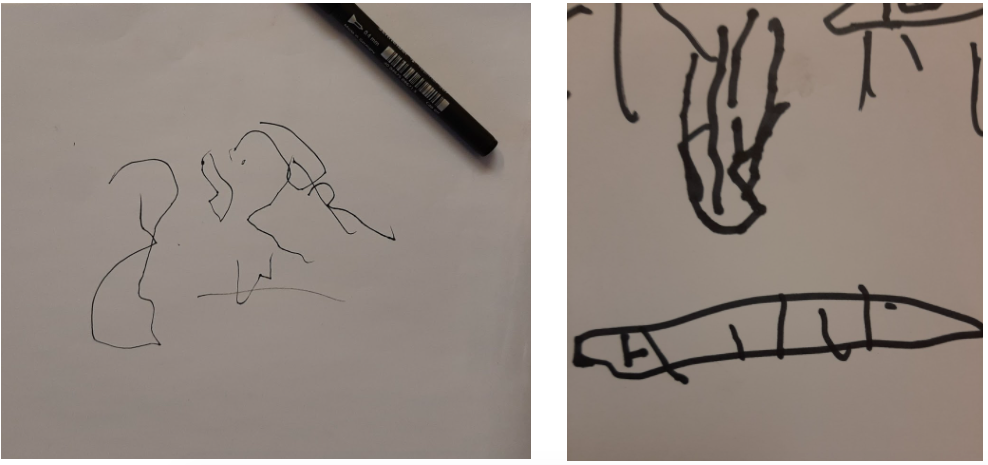
In Early Childhood Foundations, children make self portraits three times per year. The children know how to use black lines and make marks on a piece of paper. Our job, as educators, is to guide them so they can depict what they see in the reflective surface of the mirror we place in front of them.
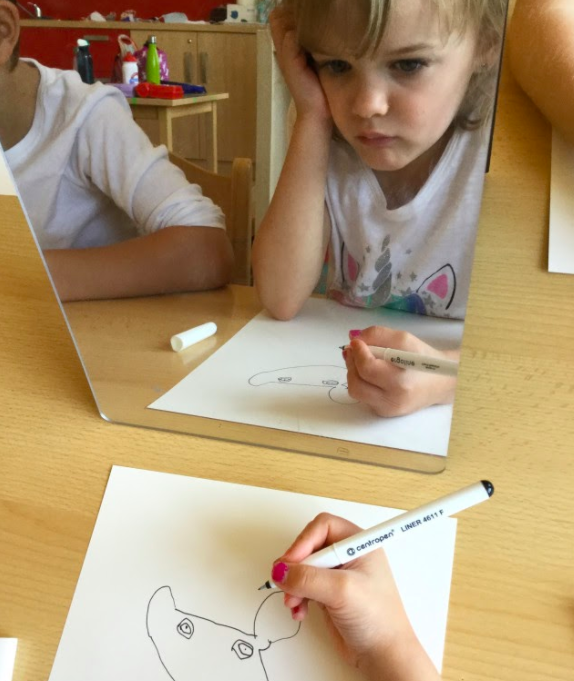
The children are given white paper and a black line marker to complete the task. Taking away the option of colours requires learners to pause and really notice details, as well as how they might depict those details. As Matt Glover, expert early educator and literacy consultant, reminds us, young writers first draw their stories and the details are key to developing a rich story with engaging characters.
Building this habit and skill of close observation and drawing details is foundational for scientists, illustrators and thinkers. Limited to only a black marker means learners find ways to use their mark making skills exclusively to add key details to their portraits. Through their self-portrait journey, children develop their . . .
- understanding of proportions,
- knowledge of shapes in context,
- awareness of changes in their appearance, and
- spatial awareness.
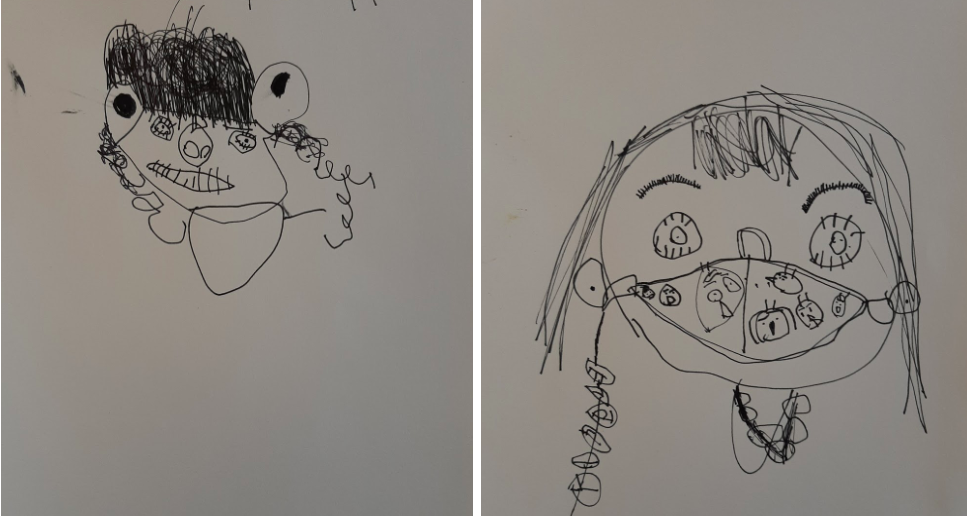
You can see the growth between the two portraits, her neck and ears became proportional to her face and she has used the whole piece of paper. We will make our last self portrait of this academic year in May 2021, hopefully maskless.
Drawing their self portraits throughout the year, children notice not only the changes in their faces, but also the changes in their capability to depict themselves. Just like in our Definition of Learning, learning means building on what you know and can do.
Research shows that metacognition and self-regulation (knowing what you’re doing, monitoring how you’re improving, and knowing how to go further)has a significant impact on learning. (Please see more details here from the Education Endowment Foundation in the UK.) This is why our learning principle, Learners know where they are as learners and how to go further, is absolutely vital at ISP, as we nurture independent, self-directed, lifelong learners.
Self-portraits are only one of many exciting and engaging ways ECF learners build the foundational mindsets, skills, and self-awareness to become empowered thinkers, writers, and scientists.
